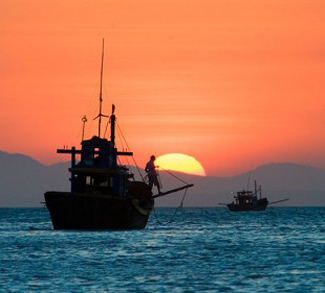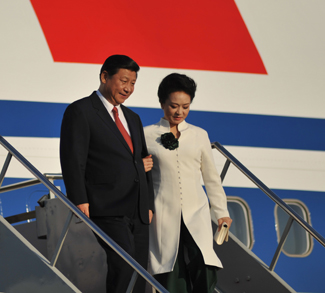On June 19, 2024, Chinese Coast Guard (CCG) officers conducted an interdiction operation on Philippine Navy rigid-hulled inflatable boats (RHIBs) at the Ayungin Shoal, also known as the Second Thomas Shoal. They boarded the RHIBs and confiscated PN-issued firearms, while themselves armed with swords, spears, and knives. PN sailors fought the Chinese Coast Guard officers with their bare hands. The vessels were on their way to rendezvous with Philippine Marines stationed at the BRP Sierra Madre, which was deliberately run aground to ensure Filipino military presence in the area.
According to PN Rear Admiral Alfonso Torres, a Naval Special Operations Command (NAVSOCOM) commando lost his thumb during the incident. Around eight sailors were injured, including the NAVSOCOM commando. Many of the PN vessels sustained damage during the fight. Philippine Coast Guard spokesman for West Philippine Sea Commodore Jay Tarriela stated that the damaged RHIBs were safely secured by the Philippine Coast Guard (PCG) with injured sailors safely evacuated after more than 12 hours. General Romeo Brawner Jr, Chief of Staff of the Armed Forces of the Philippines, remarked that only pirates would do such a thing.
Furthermore, the Department of Foreign Affairs (DFA) has condemned the incident. In a statement issued by the DFA, it stated that it “denounces the illegal and aggressive actions of Chinese authorities that resulted in personnel injury and vessel damage.”
The Chinese Embassy in the Philippines did not make any official statements. Several countries, including Japan and the United States, have condemned China’s actions.
The events are a reminder of a similar incident in the Galwan Valley in 2020 where Chinese and Indian troops wielded crude weapons instead of firearms due to an agreement made by China and India in 1996 stating firearms cannot be used. The hope here was to prevent escalation.
This latest conflict near the Second Thomas Shoal resulted in several injuries, and there have been calls for the Philippines and the United States to consider invoking the Mutual Defense Treaty (MDT). However, since the CCG and the PN did not use any firearms and fought each other with bare hands and handheld weapons, invoking the MDT wouldn’t be a prudent course of action. No PN sailors were killed in the incident and the CCG merely conducted the operation to intimidate them and force them to abort resupplying the BRP Sierra Madre. This dovetails with President Ferdinand Marcos Jr’s statement that any Filipino killed in a “willful act” would be considered an act of war – an obvious demarcation of Manila’s red line.
MDT aside, the most recent Second Thomas Shoal incident is a sign of escalation as China steps up activities to make their claim to the area. It comes as the CCG issued new regulations, allowing them to detain foreigners in Chinese territorial waters in the South China Sea for up to 60 days without trial. The rules state that “foreign ships that have illegally entered China’s territorial waters and the adjacent waters may be detained in accordance with the law, with the approval of the head of a Coast Guard agency at or above the municipal Coast Guard agency.”
Philippine Foreign Affairs Secretary Enrique Manalo and United States State Secretary Antony Blinken spoke about what took place at Second Thomas Shoal, with Blinken stating that China’s action undermines regional stability and underscored Washington’s commitment to the Philippines under the MDT. Both countries are scheduled to participate in the next 2+2 bilateral meeting with Blinken making a scheduled visit to the Philippines at an undisclosed date. On June 17, a Maritime Cooperative Activity (MCA) exercise was conducted by navy ships from Canada, Japan, the Philippines and the United States in Philippine Exclusive Economic Zone (EEZ) waters.
Not using the MDT to respond to the incident on June 19, while seemingly a weak response to the CCG’s actions, must be considered appropriate given the non-lethal nature of the clash. However, this won’t necessarily always be the case, and future incidents are sure to continue in the South China Sea amid China’s use of interdiction and boarding operations to solidify de facto sovereignty over the disputed waters.
The views expressed in this article belong to the author(s) alone and do not necessarily reflect those of Geopoliticalmonitor.com.




![BANDAR SERI BEGAWAN, Brunei (July 1, 2013) U.S. Secretary of State John Kerry gives remarks during the U.S.-ASEAN Ministerial Meeting [State Department photo by William Ng/Public Domain] BANDAR SERI BEGAWAN, Brunei (July 1, 2013) U.S. Secretary of State John Kerry gives remarks during the U.S.-ASEAN Ministerial Meeting [State Department photo by William Ng/Public Domain]](https://www.geopoliticalmonitor.com/wp-content/uploads/2016/02/Secretary_Kerry_at_the_U.S.jpg)